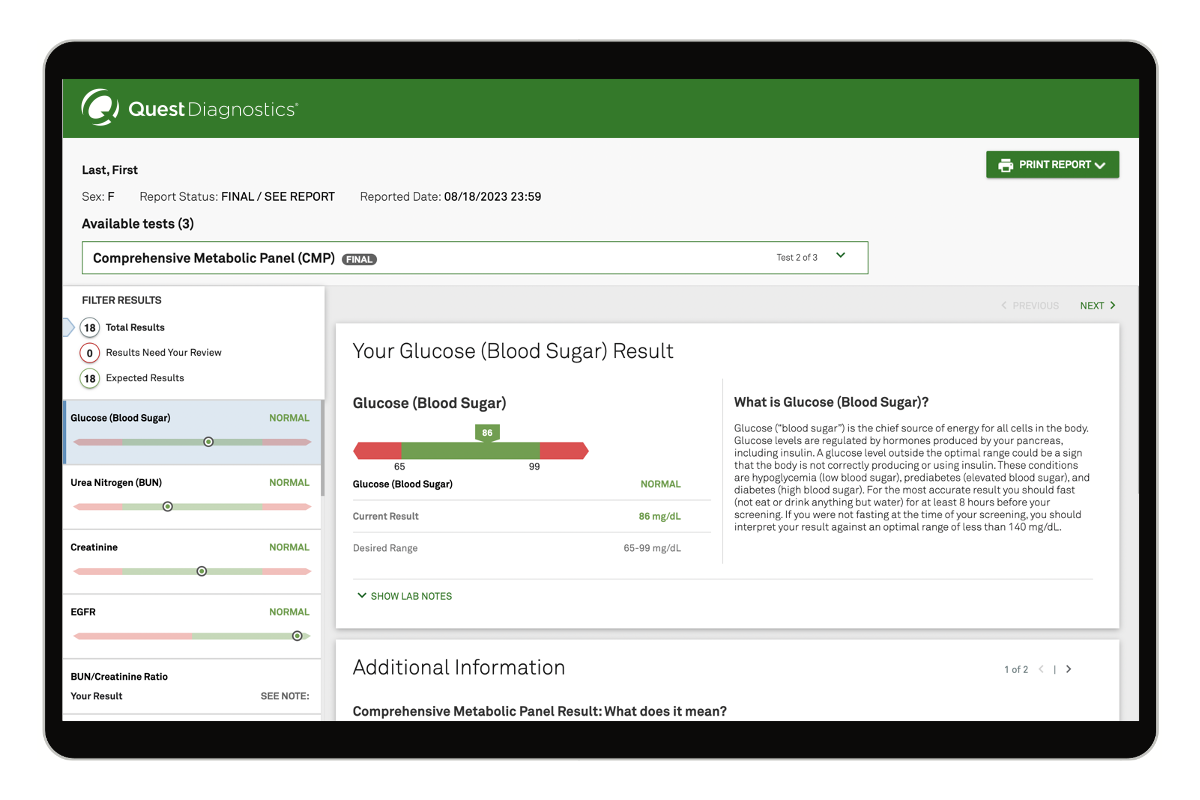Comprehensive Metabolic Panel (CMP) Test
The CMP test measures 14 components of the blood to assess liver and kidney function, hypertension, proteins, blood sugar, and calcium. Read moreThe comprehensive metabolic panel (CMP) helps assess overall health, detect early signs of disease, and monitor chronic conditions. It measures 14 components: blood sugar (glucose), calcium, total protein, liver enzymes, bilirubin, blood urea nitrogen, creatinine, albumin, carbon dioxide, and key electrolytes. Abnormal CMP test results may indicate various health conditions, such as developing or active liver or kidney disease, hypertension, or diabetes.
With Quest, you can buy a CMP test online and get testing at a nearby location – no doctor’s visit required.
How it works
questhealth.com offers 100+ consumer-initiated Quest Diagnostics lab tests to empower you to have more control over your health journey. Choose from a variety of test types that best suit your needs.
Albumin, together with globulin, forms the total protein level on the Comprehensive Metabolic Panel. Globulins are critical for liver function, blood clotting, moving nutrients throughout the body, and fighting infection. Some globulins are produced by the liver; others are made by the immune system in response to an infection or an allergic reaction.
Along with total protein, the CMP indicates the ratio of albumin to globulin (A/G ratio) to detect whether your protein level is abnormal. If your total protein level and A/G ratio are abnormal, this may indicate that your body is not digesting or absorbing proteins properly or that your kidney or liver are not functioning correctly. If your A/G ratio is excessively high or low, further blood and urine testing may be suggested.
Creatinine, BUN, and estimated glomerular filtration rate (eGFR) provide information about the overall health of the kidneys. The kidneys filter creatinine and BUN from the blood and remove them from the body. An eGFR measures how much blood the renal glomeruli remove every minute based on your body size, indicating how efficiently the kidneys are functioning.
In addition, a CMP includes a BUN/Creatinine ratio—which, if elevated, may suggest a condition that causes decreased blood flow to the kidneys, such as dehydration or congestive heart failure.
FDA. Sodium in your diet. www.fda.gov/food/nutrition-education-resources-materials/sodium-your-diet



